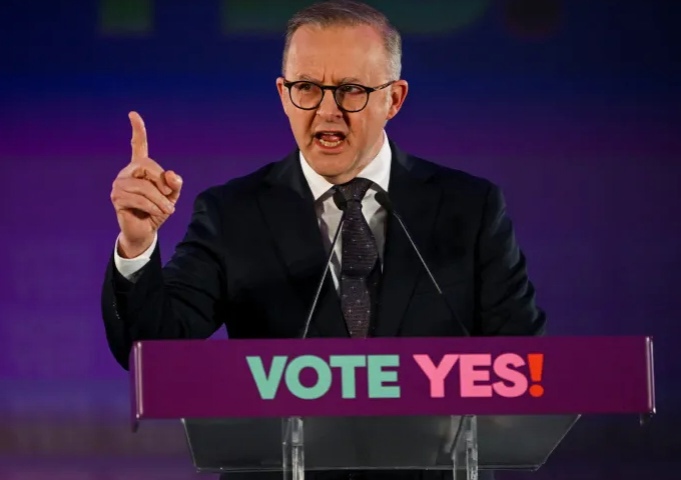Australian Prime Minister Anthony Albanese said on Monday he believes he is to blame for the failure of an Indigenous recognition question in a referendum that could now weaken his authority.
On Saturday, more than 60 per cent of Australians voted ‘no’ in a referendum. It was about changing the constitution to recognise the country’s indigenous population and establish an advisory body to advise parliament on indigenous issues. However, in remote areas where indigenous peoples live, the majority voted in favour of the referendum question, unlike in the rest of the country.
Mr Albanese made significant political capital on the yes vote, despite being opposed by the opposition Liberal Party. On Monday, he met Liberal leader Peter Dutton during parliamentary questions for the first time since the referendum failed. In Australia‘s history as a nation, only eight out of 45 referendums have been successful, and none has passed without bipartisan support. Mr Albanese said:
We know that referendums are hard, that is why only eight of 45 have passed. I certainly accept responsibility for the decisions that I have taken.
On Monday, Mr Dutton, who had previously backed the idea of a second referendum solely on the issue of Indigenous recognition in the Constitution, said there were no plans for a second vote “for some time”.
Mr Albanese still leads Mr Dutton’s preferred leader list, but his Labour party is showing its lowest polling levels since taking power in May 2022.
The failure of the referendum had dealt a serious blow to efforts to reconcile with the country’s indigenous population and could tarnish Australia’s image in the world in relation to the treatment of members of that community. An editorial in the Sydney Morning Herald said on Monday:
The damage from Saturday’s vote will be extreme. This will set back the cause of reconciliation, despite what politicians are saying.
The Australian Financial Review, the country’s main business newspaper, said the referendum result was “heartbreaking” for the country’s indigenous people, who make up just 3.8 per cent of the population and have suffered centuries of neglect and discrimination since being colonised by Britain in 1788.
The Voice to Parliament was proposed in the Uluru Statement from the Heart, a 2017 document crafted by Indigenous leaders that set out a roadmap for reconciliation with wider Australia. Supporters of the proposal believed entrenching an Indigenous Voice into the constitution would unite Australia and usher in a new era with its Indigenous people.
